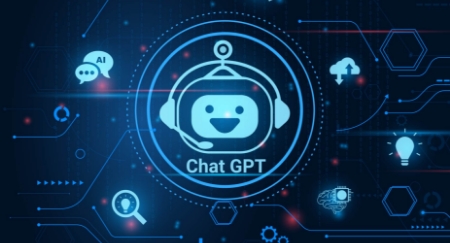Impact Of Chat GPT On the Salesforce Ecosystem
- Featured Insights
- April 24, 2023
Whenever we have a problem statement in mind, what do we do first? We search the internet for available solutions, look for consultants, and subject matter experts, and even reach out to social media for the right answers.
What if I told you there is a one-stop solution where you can just type whatever question you have and you will get the answer right away? Sounds impossible? Well, not quite. OpenAI’s ChatGPT, which has recently taken the internet by storm, makes this very much possible.

What exactly is Chat GPT?
ChatGPT is the new AI-powered chatbot developed by Microsoft-backed artificial intelligence research laboratory OpenAI. It is an AI (Artificial Intelligence) chatbot or LLM (Large Language Model) that uses natural language processing (NLP) to interact with you as though you are talking to a real person. ChatGPT responds in human-like conversations, can answer your questions, and assist you in writing codes, emails, essays, etc.
Does it end the career of Salesforce Developers?
Chat GPT can create Apex code, Validation Rules, Workflow Rules, Test cases, formulas, LWC, etc. by just typing a problem statement. Though it cannot create flows or any declarative result as it responds in texts, it can create the XML that is generated from declarative action, such as creating an object and fields. ChatGPT works well for a narrow scope that is well specified. For a broader scope, the results are less convincing. For instance, it cannot efficiently write an XML code for setting up a Sales Cloud Data Model for a customer, no matter how much detail you provide.
The way you interact with Chat GPT is by typing a request on the input field, which it then scans, gathers relevant information from the enormous database, and provides you with a formulated answer in a remarkable natural conversational style. Contrary to the common misconception, it does not create new ideas or content. So, the more accurate you are with the input question and the narrower the scope, the better the results. Even then it is not 100 % accurate all the time.
While working with various clients, consultants and architects must analyze bits and pieces of information to form a pattern to solve the unique business problems. While ChatGPT may attempt to solve these business problems with one-liners, it is the experience of the consultants and architects that render the solutions most effective. And since business problems are not as simple as a one-liner, it is the human experience that ultimately excels. So, to put it simply, Chat GPT cannot replace years of human experience.
As such, Chat GPT will not be replacing Salesforce Developers. In fact, it will make them more productive and effective. Developers can now exploit the potential of Chat GPT and write good-quality codes in seconds and modify it as per business needs as well. They can also use Chat GPT for learning and improving coding skills.
Business Analysts can use Chat GPT to write process steps, generate SOW, documentation, presentations, etc. and modify the results as per specific business needs.
To sum:
One of the key Salesforce benefits is its ability to streamline business processes and enhance customer experience. By incorporating Chat GPT, Salesforce consultants can take advantage of its efficient and convenient problem-solving capabilities to further enhance these benefits.
Incorporating Chat GPT into the Salesforce ecosystem has the potential to produce outstanding results for consultants and clients alike. With the ability to continually train and improve itself, Chat GPT can become an even more valuable tool in the future. It’s possible that even this article was written using Chat GPT, demonstrating its potential to revolutionize the way we work.